Normal Consonants Worksheets for Ages 3-9
26 filtered results
-
From - To
Discover engaging and educational "Normal Consonants Worksheets for Ages 3-9" at Kids Academy! Our expertly designed worksheets help young learners master consonant sounds and letter recognition while promoting literacy through fun activities. Perfect for preschoolers and early elementary kids, these printables feature colorful illustrations, delightful exercises, and interactive tasks to keep children motivated. Enhance reading and writing skills with our age-appropriate resources tailored to your child’s developmental stage and learning pace. Empower your little ones with confidence, phonetic awareness, and a solid consonant foundation. Download now and join hundreds of parents and teachers nurturing early literacy success!
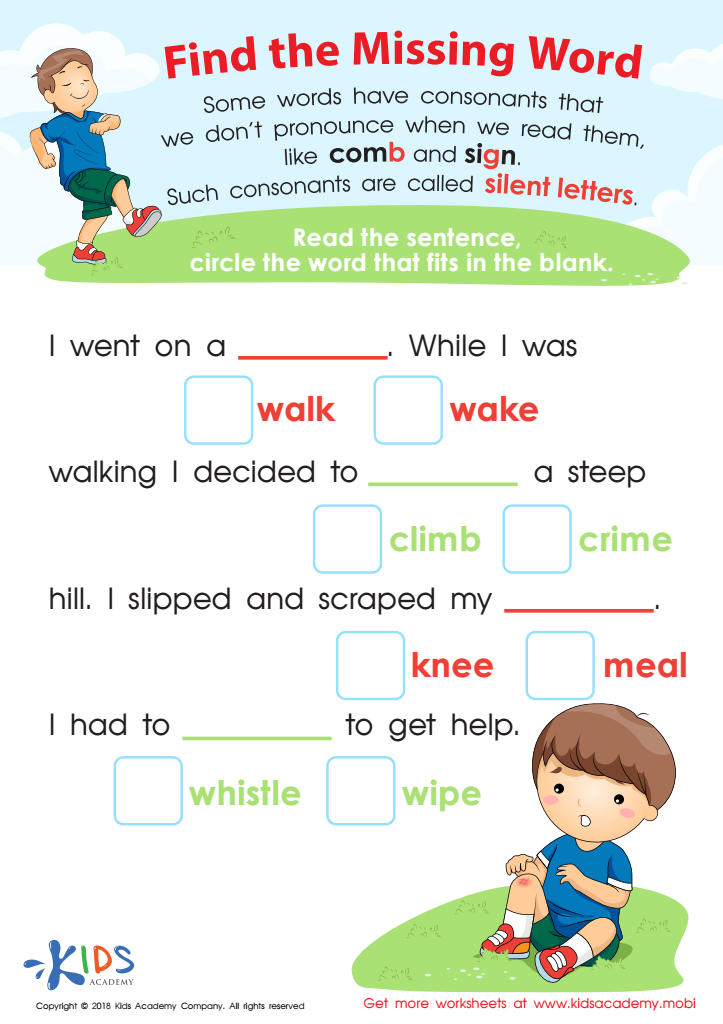

Find The Missing Word Worksheet
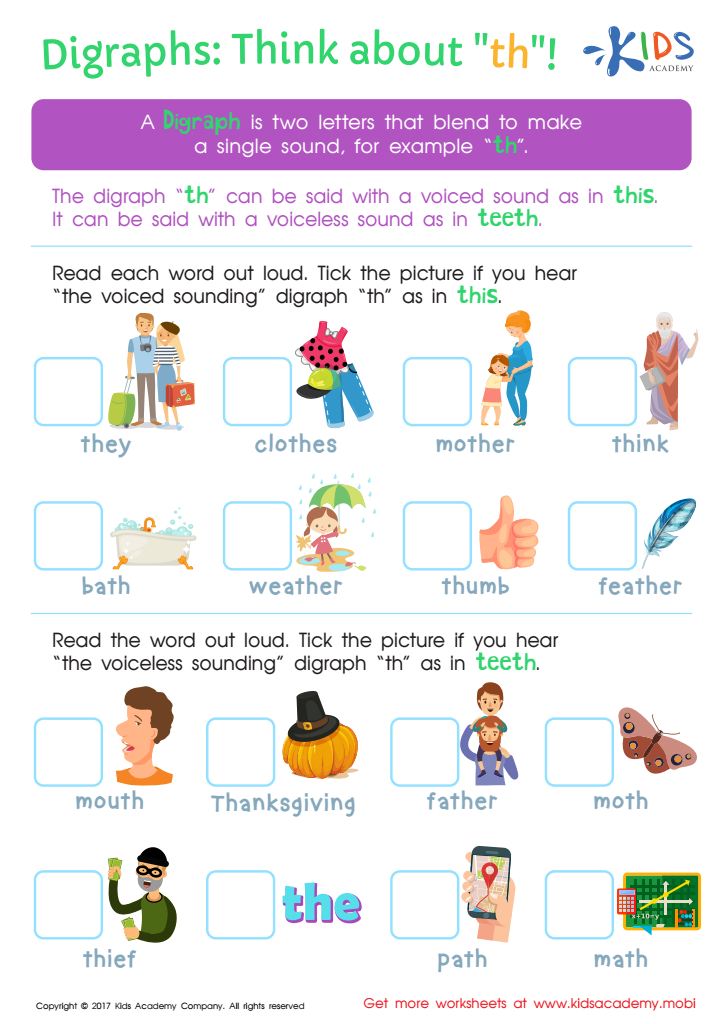

Digraphs: Think About "th" Worksheet
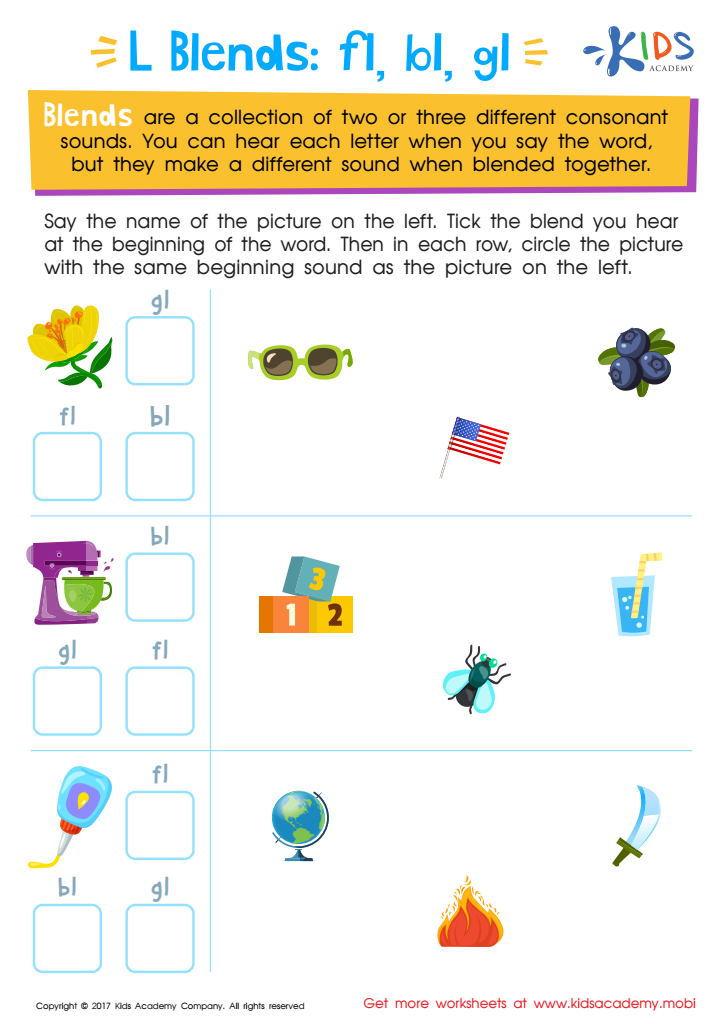

Blending Consonants: "Fl", "Bl" and "Gl" Printable
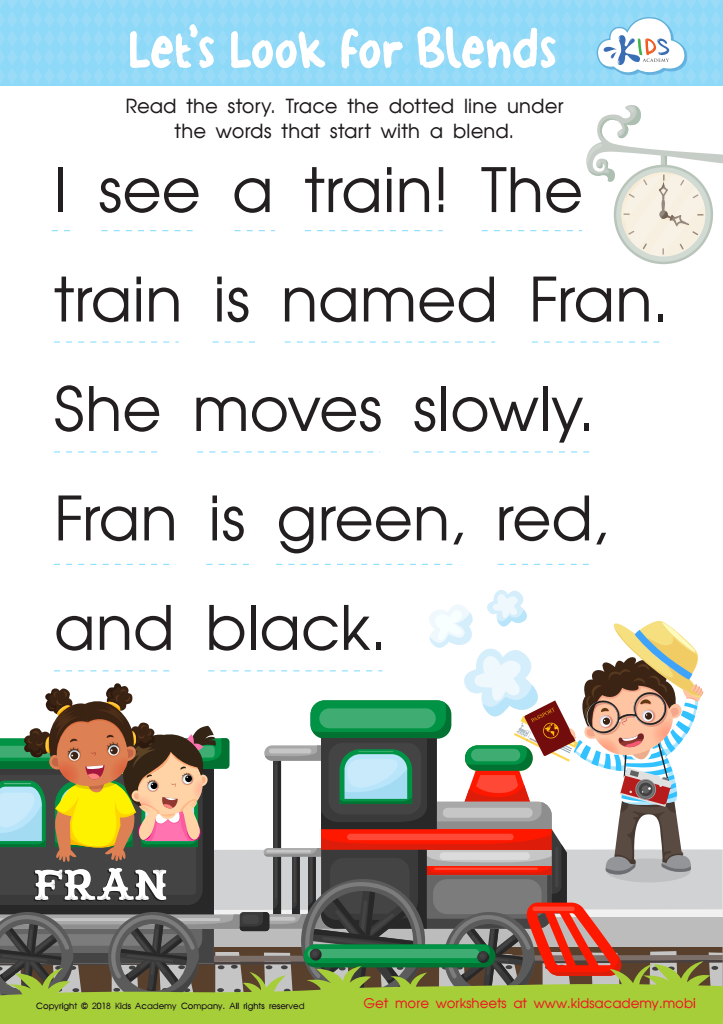

Let's Look for Blends Worksheet


Vowel and Consonant Sounds: Assessment Worksheet
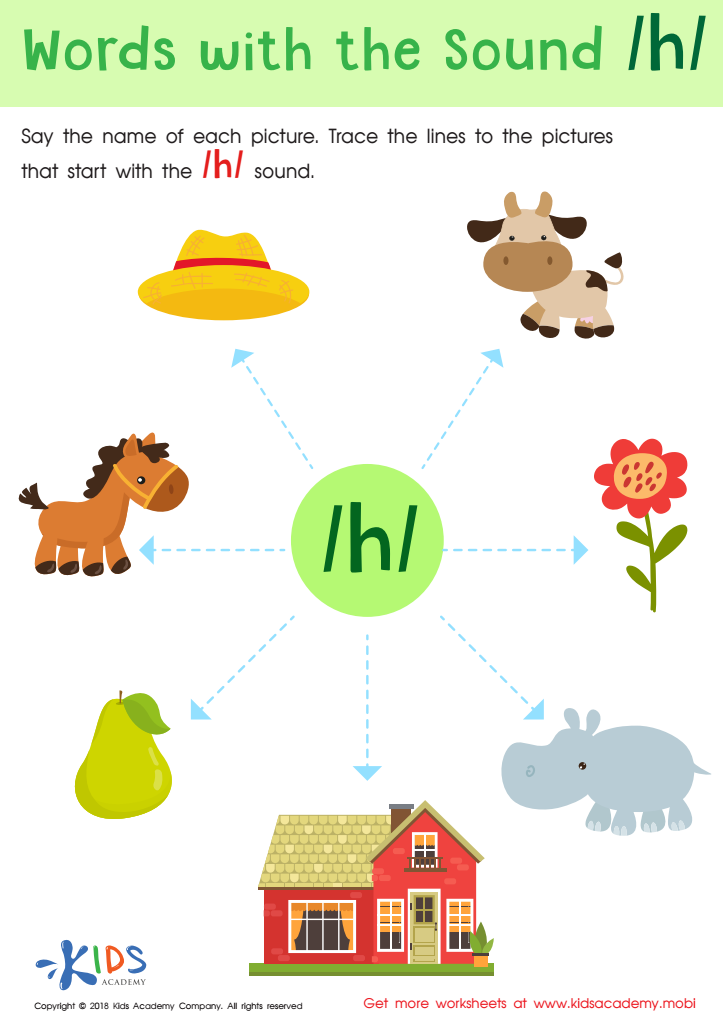

Words with sound h Reading Worksheet
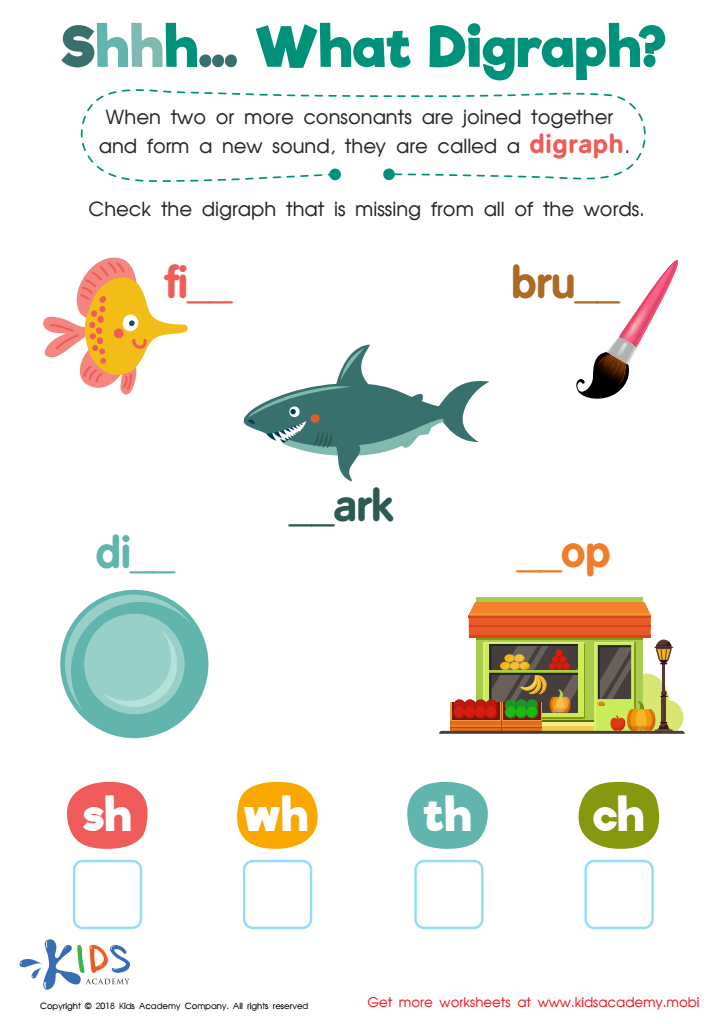

Shhh... What Digraph? Worksheet
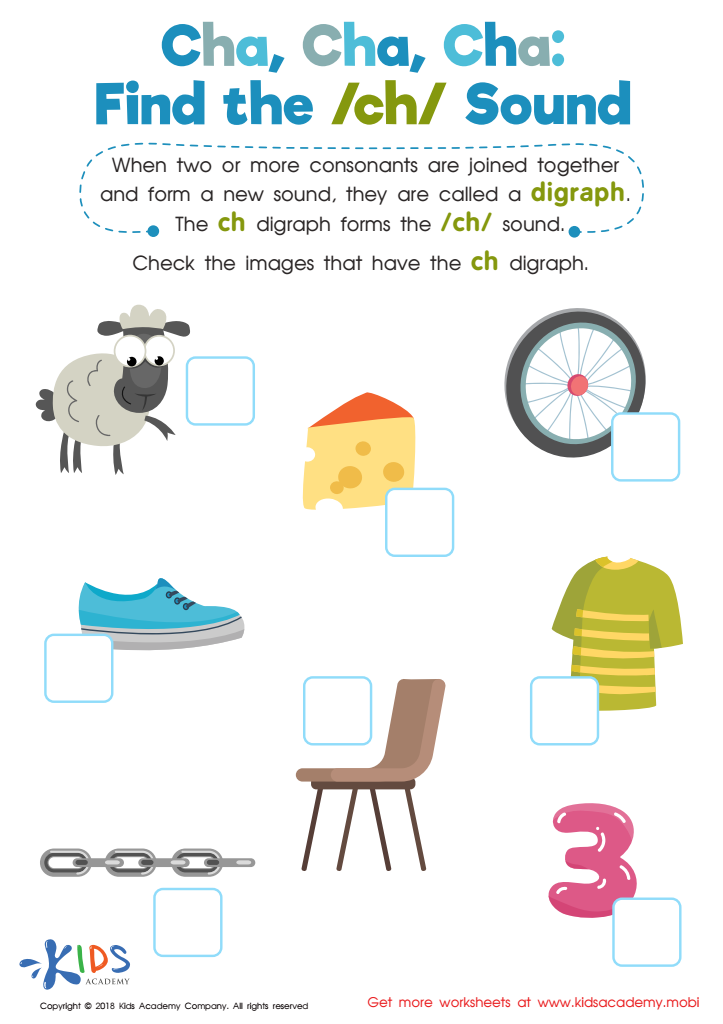

Cha, Cha, Cha: Find the /Ch/ Sound Worksheet


Twin Onset Worksheet
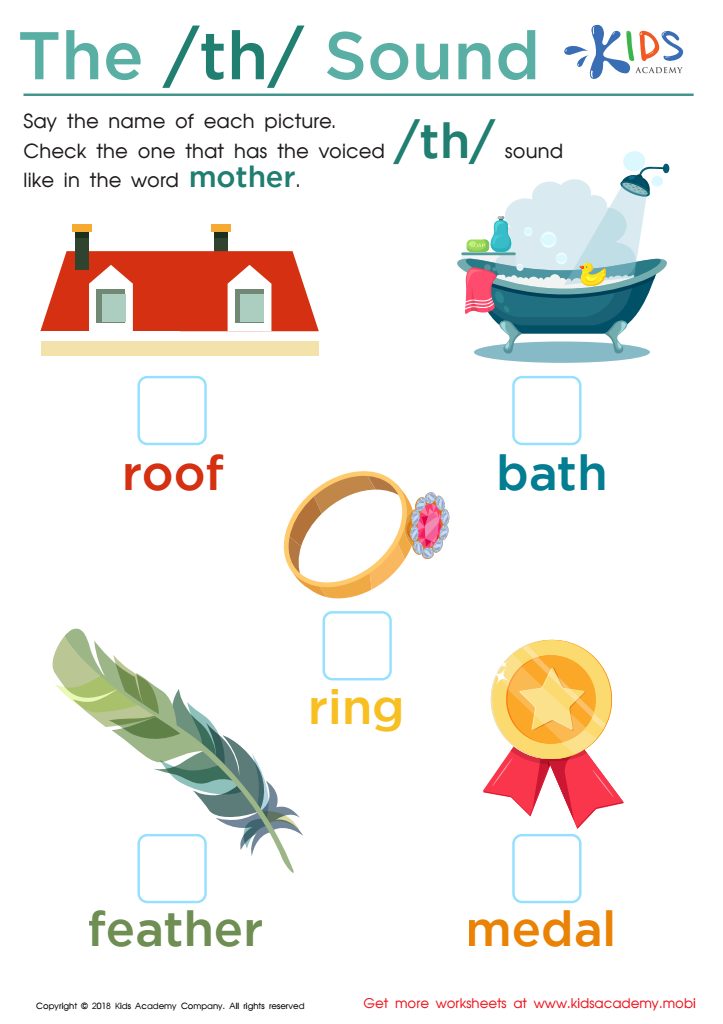

The /th/ Sound Worksheet
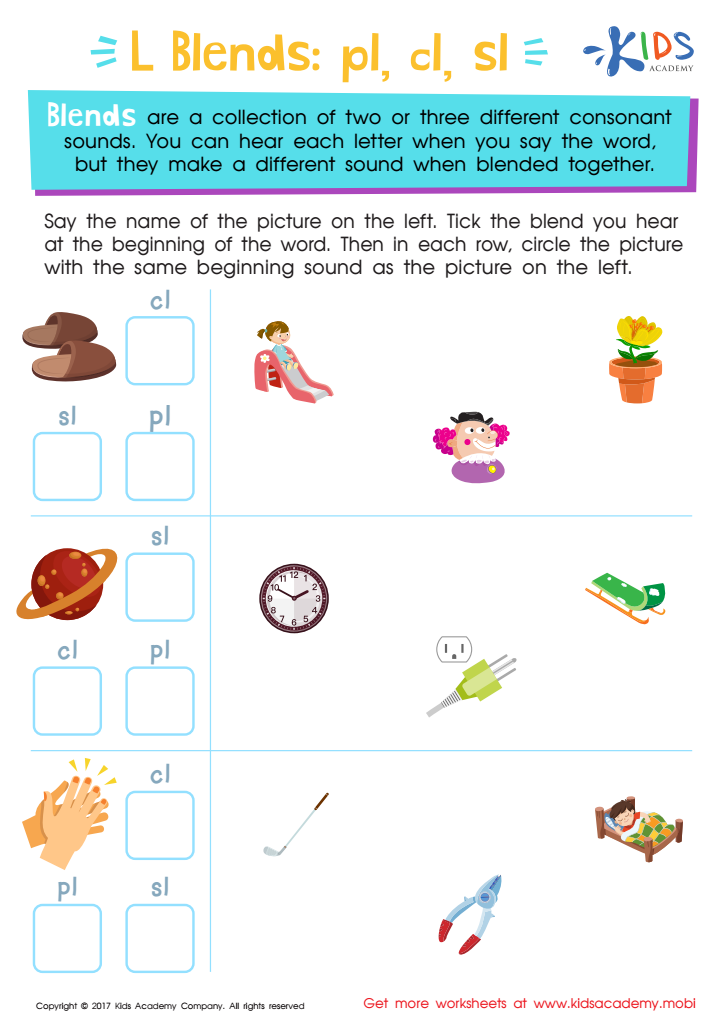

L Blends: "Pl", "Cl" and "Sl" Printable
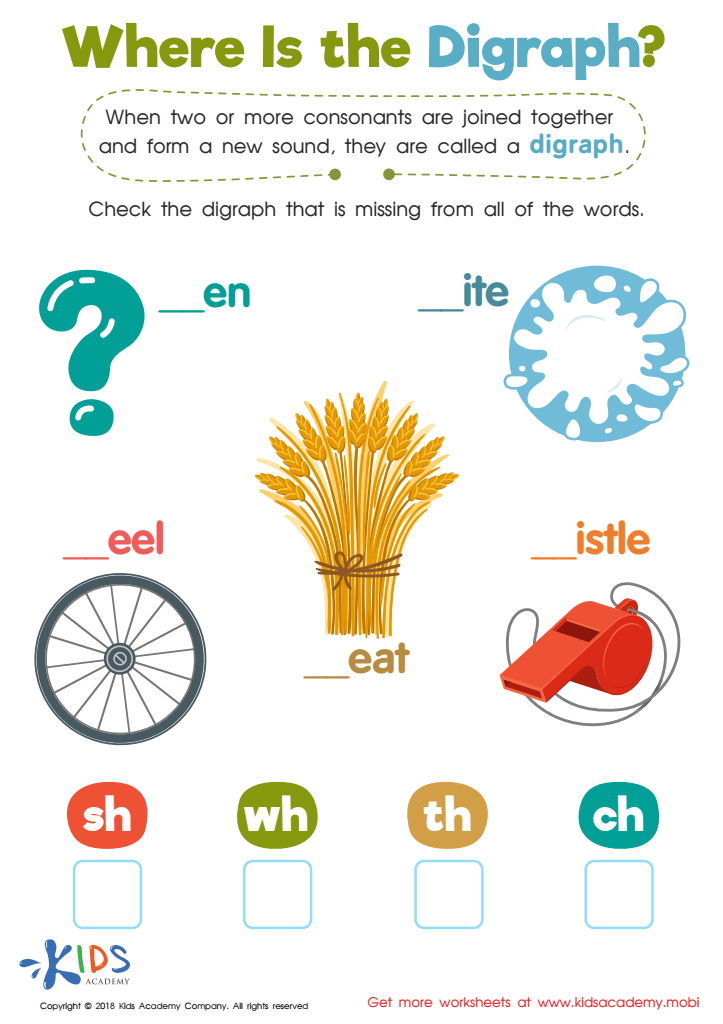

Where Is the Digraph? Worksheet
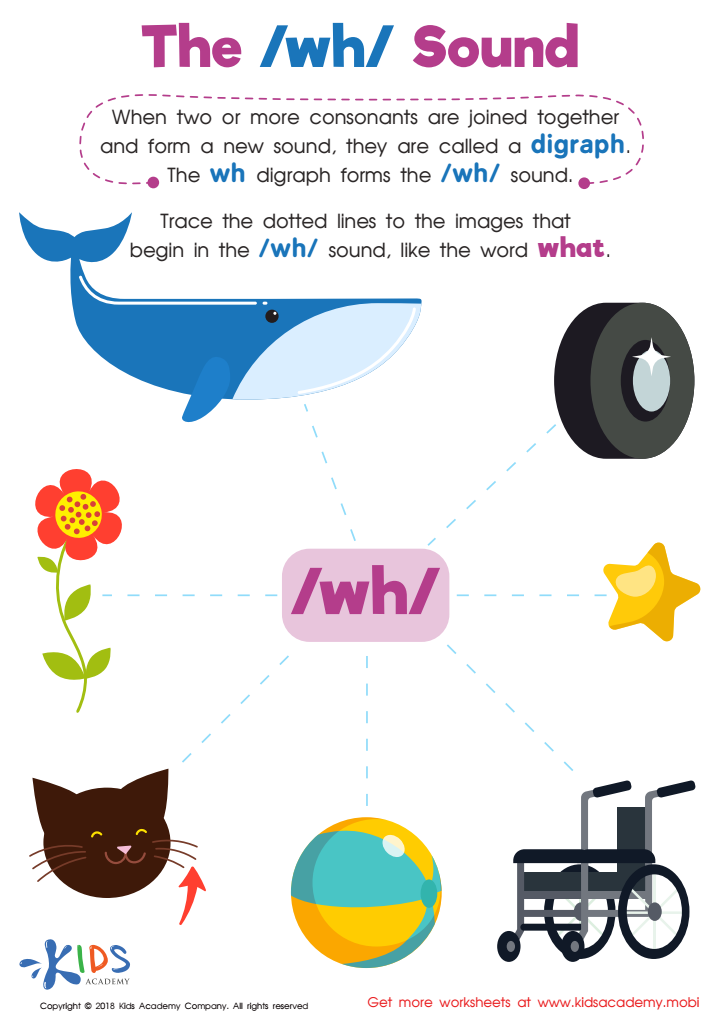

The /wh/ Sound Worksheet
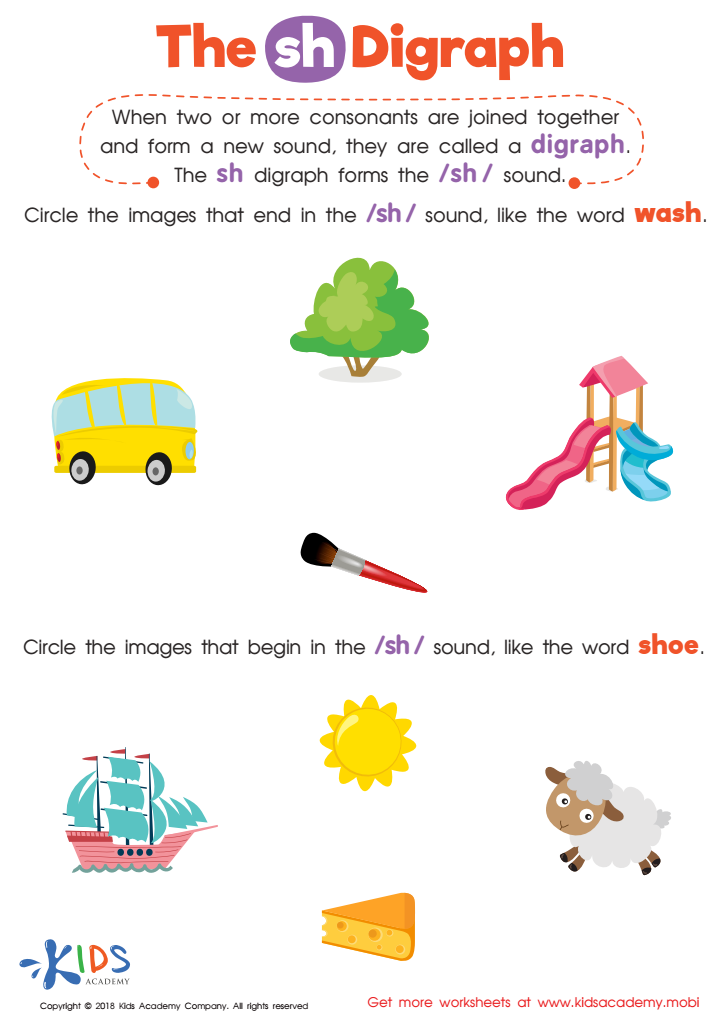

The SH Digraph Worksheet
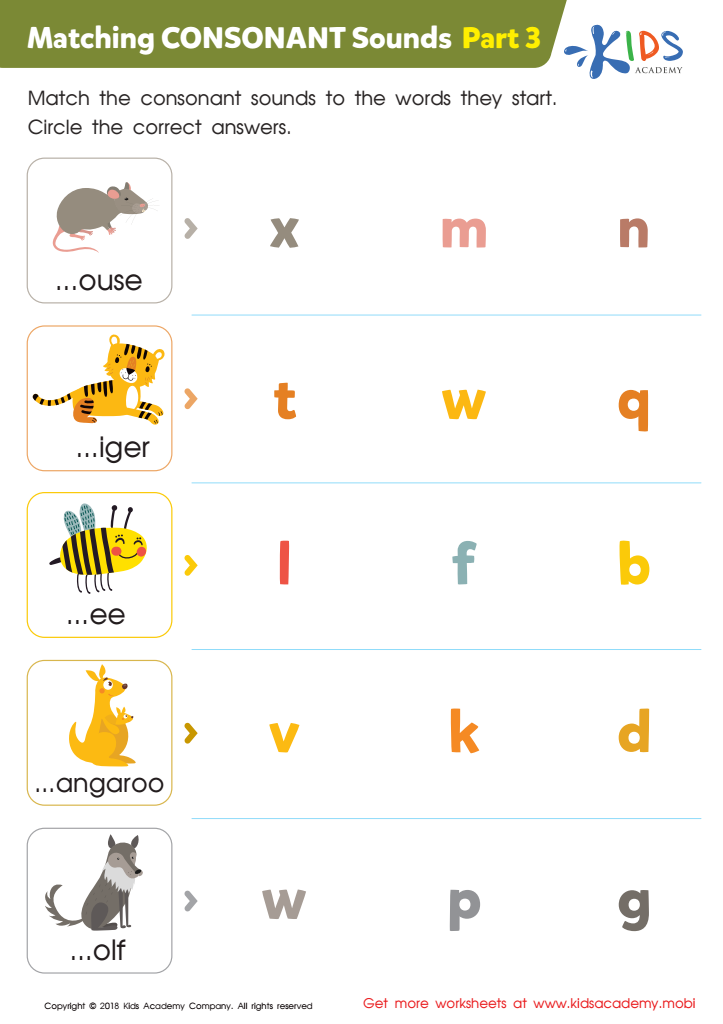

Matching Consonant Sounds: Part 3 Worksheet
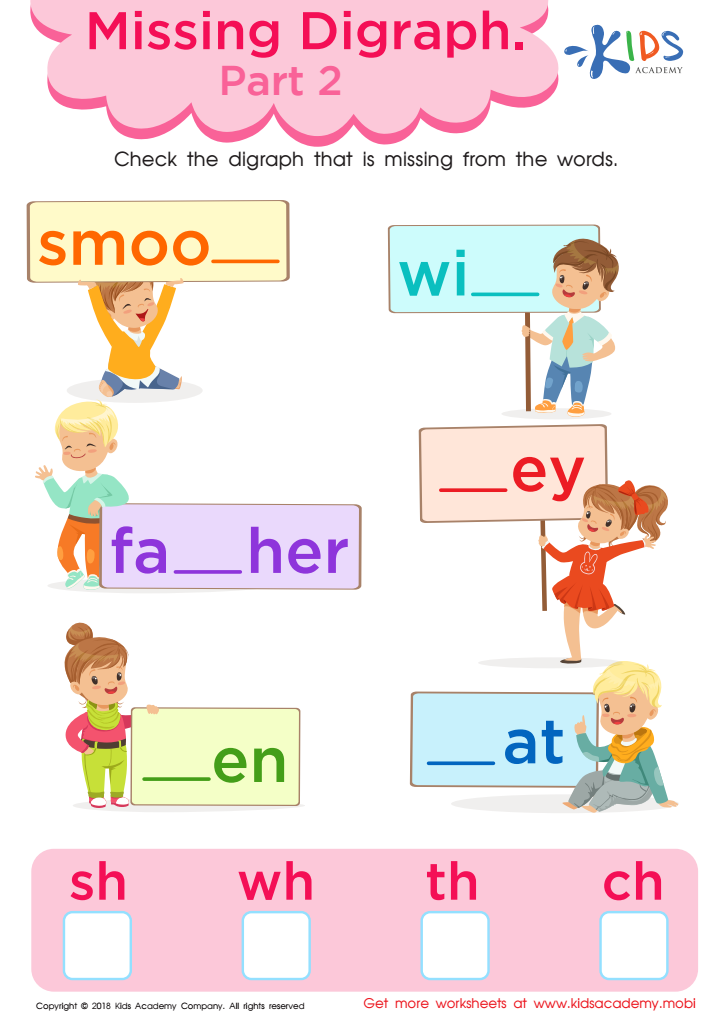

Missing Digraph: Part 2 Worksheet
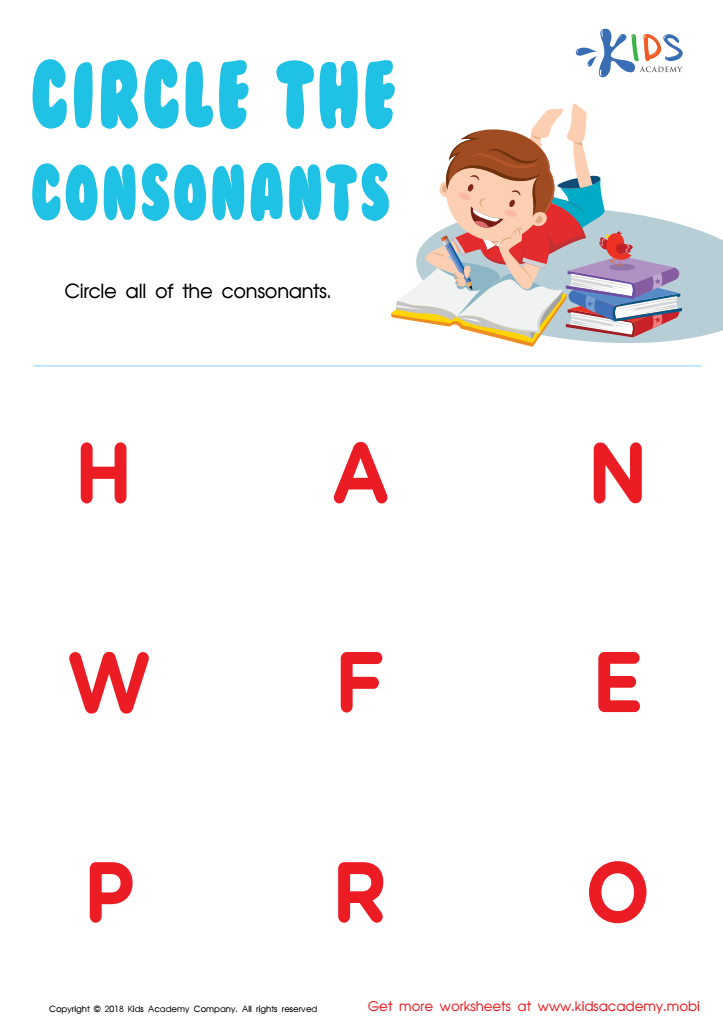

Circle the Consonants Worksheet


Words with sound p Reading Worksheet
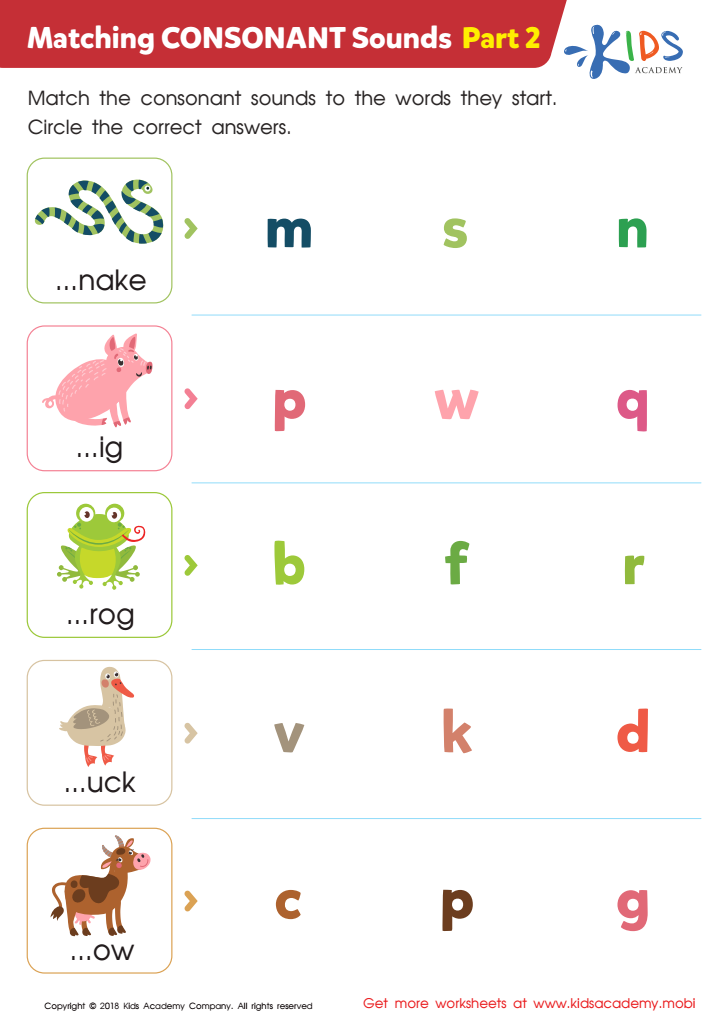

Matching Consonant Sounds: Part 2 Worksheet


Words with sound f Reading Worksheet
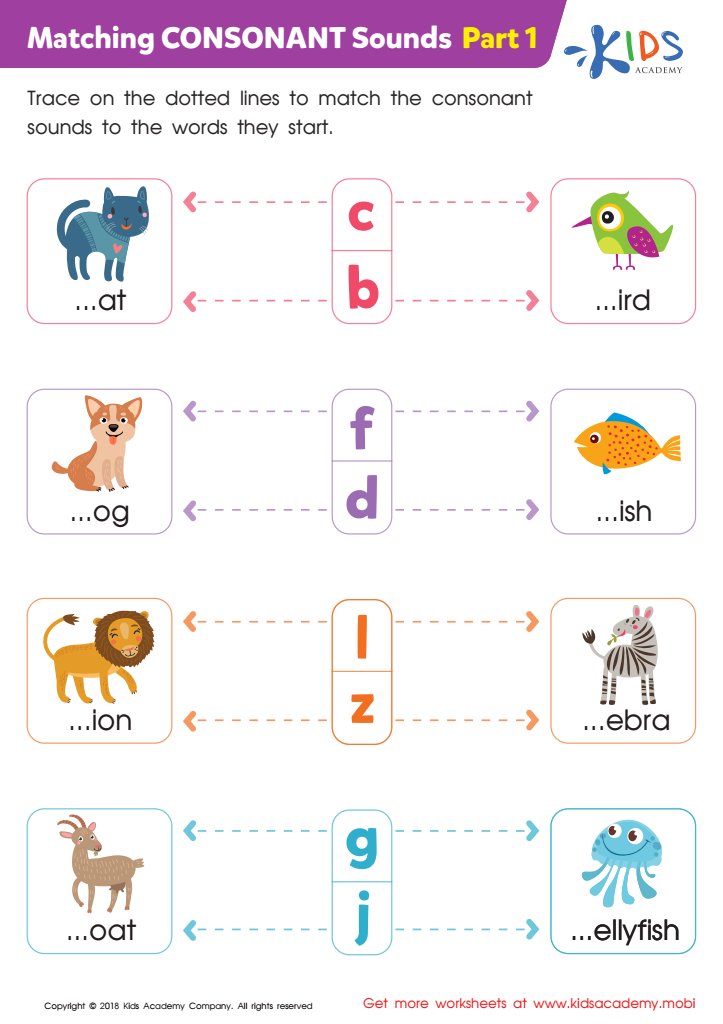

Matching Consonant Sounds: Part 1 Worksheet
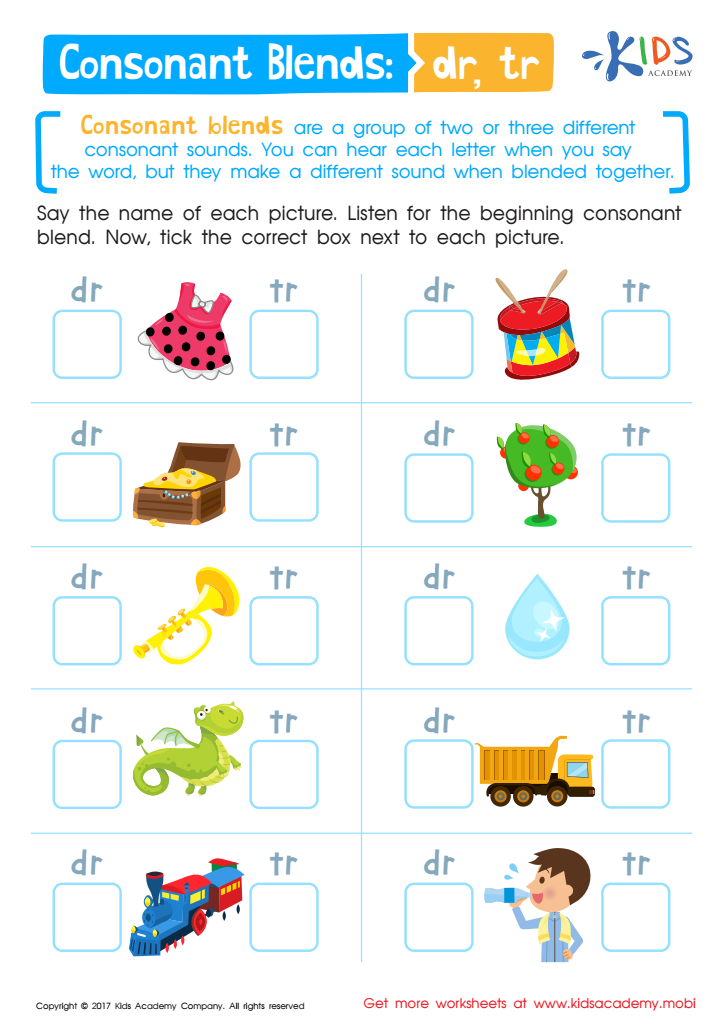

Consonant Blends: "Dr" and "Tr" Printable


Double Consonant Spelling Worksheet
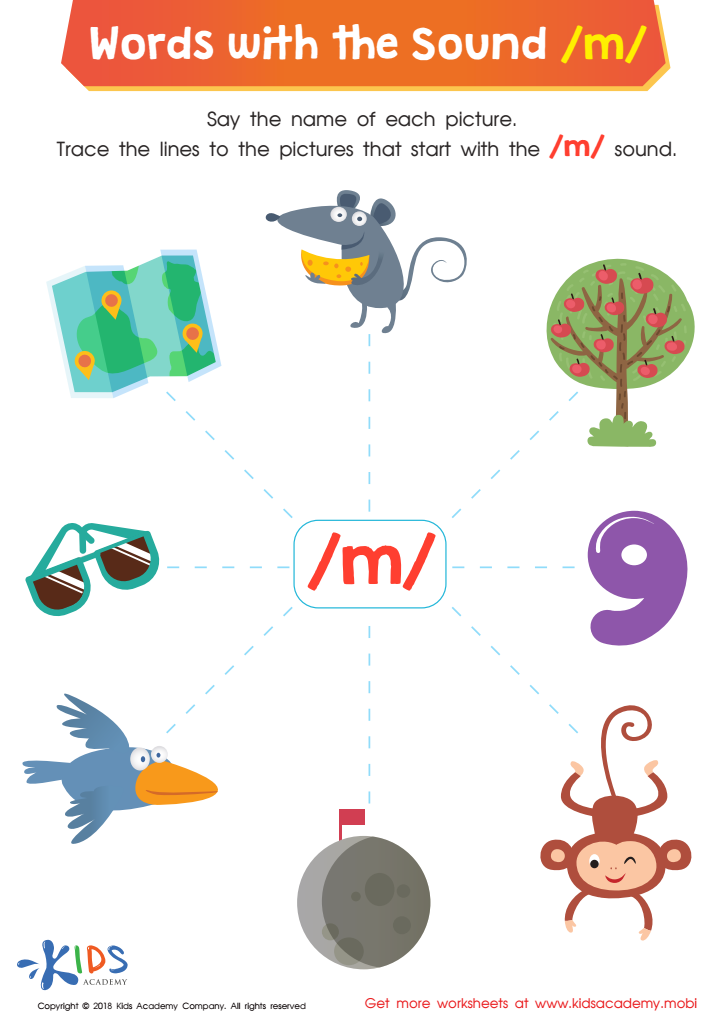

Words with Sound M Reading Worksheet
Normal consonant development is vital for children aged 3-9 as it forms the foundation of effective communication and literacy. During these formative years, children acquire the basic building blocks of language, which are crucial for later academic success and social interactions. Recognizing and supporting normal consonant development can help address potential speech and language issues early on, fostering better outcomes in reading, writing, and interpersonal skills.
For parents, being aware of this developmental milestone helps them understand their child’s progress and identify when to seek support from speech-language professionals if necessary. Early identification and intervention can rectify speech issues before they lead to more complex problems.
Teachers play a critical role in reinforcing proper speech patterns and phonemic awareness in the classroom. By integrating consonant recognition and articulation activities into their lessons, teachers can enhance children’s phonological skills, aiding them in decoding words while reading and improving their spelling capabilities. Using interactive and engaging methods can make mastering consonants enjoyable for children.
In summary, attention to normal consonant development is essential as it promotes clear communication, boosts academic achievements, and supports emotional and social well-being. When parents and teachers collaborate to nurture this aspect of early childhood development, they set the stage for lifelong success.
 Assign to My Students
Assign to My Students










